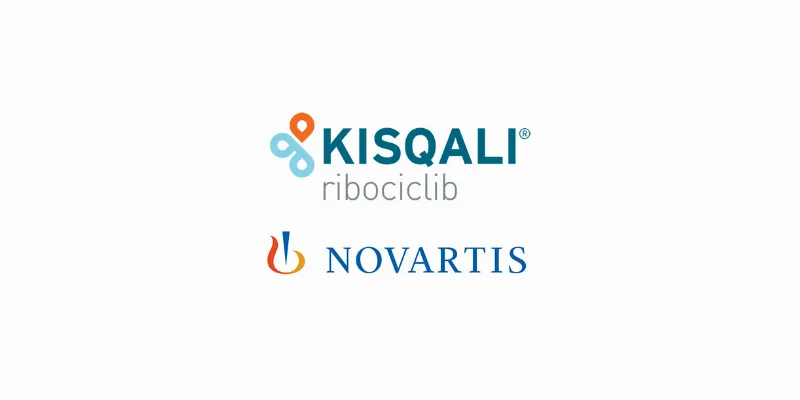NATALEE Trial: Novartis' Kisqali Achieves 25% Reduction in Breast Cancer Recurrence Risk


ONCOLife |
13 December 2023
Novartis has announced encouraging results from Phase III NATALEE trial of Kisqali in early breast cancer treatment. The trial demonstrated a 25.1% reduction in risk of disease recurrence, with benefits consistent across key patient subgroups. These promising results support regulatory submissions and pave the way for further research.
At the 2023 San Antonio Breast Cancer Symposium Annual Meeting, Novartis presented updated results from the Phase III NATALEE trial, focusing on Kisqali® (ribociclib). The findings show a significant 25.1% reduction in the risk of disease recurrence in patients with stage II and III hormone receptor-positive/human epidermal growth factor receptor 2-negative (HR+/HER2-) early breast cancer (EBC). This reduction was observed in patients treated with Kisqali in combination with a non-steroidal aromatase inhibitor, as compared to those receiving standard endocrine therapy (ET) alone.
The updated NATALEE trial results mark a significant milestone in breast cancer therapy, demonstrating Kisqali's profound impact on potentially improving survival rates. With an additional 5.6 months of follow-up, and 78.3% of patients having completed their Kisqali treatment, the analysis reveals sustained invasive disease-free survival (iDFS) benefits, along with stable outcomes in secondary endpoints, including overall survival (OS).
“The final iDFS analysis of NATALEE represents a significant milestone, building upon the robust evidence supporting Kisqali as a potential new adjuvant treatment for a broad, clinically common and identifiable population of patients with stage II and III HR+/HER2- early breast cancer,” said Jeff Legos, Executive Vice President, Global Head of Oncology Development at Novartis.
Subgroup Analysis
Among key patient subsets, Kisqali demonstrated consistent invasive disease-free survival (iDFS) benefits, with a 30% reduction in risk for patients with stage II tumors and a 24.5% reduction for those with stage III tumors. Kisqali's data across all secondary efficacy endpoints remained consistent, including a 25.1% risk reduction in distant disease-free survival (DDFS) and a 27.3% risk reduction in recurrence-free survival (RFS). With fewer than 4% of events in both treatment arms (3.3% in the Kisqali-ET arm and 3.4% in the ET-only arm), overall survival (OS) results are expected to continue evolving over the longer term.
The safety profile of Kisqali at the 400 mg dose remained consistent with previously reported results, with generally low-grade adverse events (AEs), other than laboratory abnormalities. AEs of special interest (grade 3 or higher) were neutropenia (44.3%), liver-related AEs (e.g., elevated transaminases) (8.6%), and QT interval prolongation (1.0%). No new safety signals were identified.
Dr. Gabriel N. Hortobagyi from The University of Texas MD Anderson Cancer Center emphasized the critical need for effective and well-tolerated treatments, stating: “As clinicians, we know that patients diagnosed with HR+/HER2- early breast cancer remain at risk of recurrence for decades, despite adjuvant endocrine therapy. Moreover, the real risk observed in this analysis in patients treated with endocrine therapy alone, including those with node-negative disease, highlights the need for effective and tolerable treatment options that can help keep patients cancer-free in the short and long term.”
Importance of the Trial Results:
The NATALEE trial's results are crucial as they represent a significant advancement in the treatment of early-stage breast cancer. Kisqali has demonstrated substantial efficacy in reducing the risk of disease recurrence. This is a notable breakthrough because these subgroups of breast cancer patients are commonly affected and often face the risk of recurrence even after initial treatment. By showing a marked reduction in this risk and no significant impact on patients' quality of life, the trial results suggest that Kisqali could become a standard part of early breast cancer treatment.
About Kisqali (ribociclib)
Kisqali® (ribociclib) has shown significant overall survival benefits in three Phase III trials for metastatic breast cancer (MBC). Recognized in January 2023 NCCN Guidelines® as the preferred first-line treatment for HR+/HER2- MBC, Kisqali, combined with an aromatase inhibitor, is the only CDK4/6 inhibitor with a Category 1 rating. It scores highest on the ESMO Clinical Benefit Scale for pre-menopausal HR+/HER2- advanced breast cancer and has unique high ratings for post-menopausal cases. Approved in 99 countries, including the U.S. and EU, Kisqali's effectiveness continues to be a focus of ongoing research.











Comments
No Comments Yet!